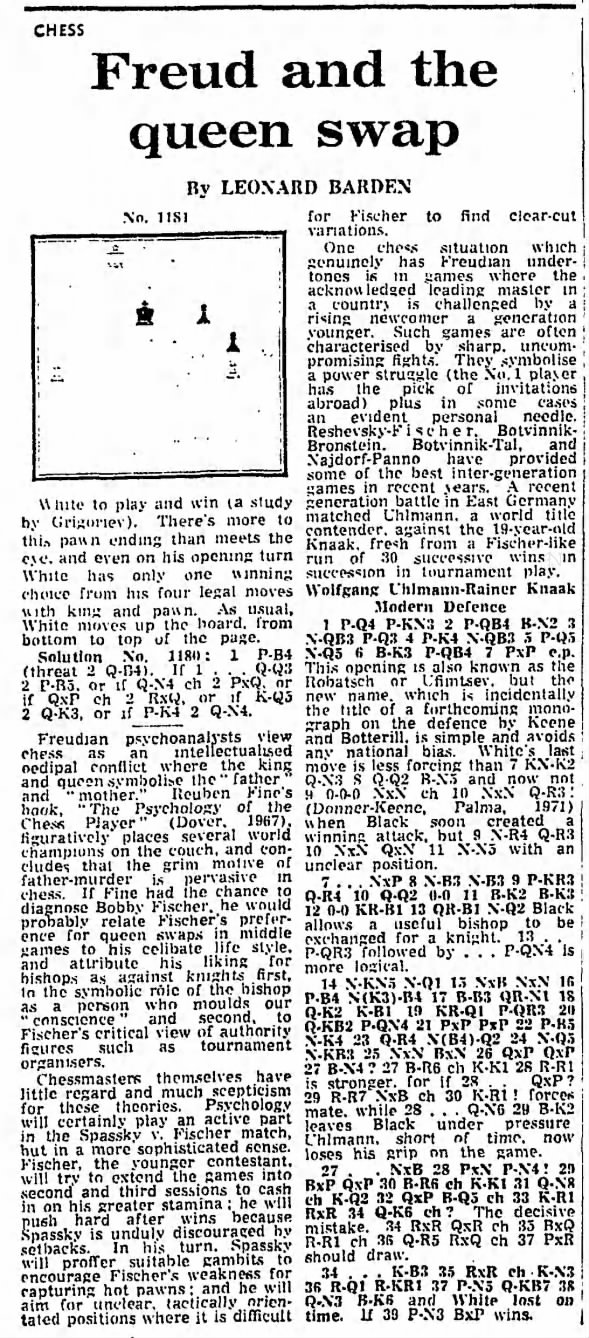< Prev Index Next >
 Chess Mon, Mar 6, 1972 – 19 · The Guardian (London, Greater London, England) · Newspapers.com
Chess Mon, Mar 6, 1972 – 19 · The Guardian (London, Greater London, England) · Newspapers.com
Chess: Freud and the Queen Swap by Leonard Barden
Freudian psychoanalysts view chess as an intellectualized oedipal conflict where the king and queen symbolize the ‘father’ and ‘mother’. Reuben Fine's book, ‘The Psychology of the Chess Player’ (Dover, 1967), figuratively places several world champions on the couch, and concludes that the grim motive of father-murder is pervasive in chess. If Fine had the chance to diagnose Bobby Fischer, he would probably relate Fischer's preference for queen swaps in middle games to his celibate life style, and attribute his liking for bishops as against knights first, in the symbolic role of the bishop as a person who moulds our 'conscience' and second, to Fischer's critical view of authority figures such as tournament organizers.
Chess masters themselves have little regard and much skepticism for these theories. Psychology will certainly play an active part in the Spassky v. Fischer match, but in a more sophisticated sense. Fischer, the youngest contestant, will try to extend the games into second and third sessions to cash in on his greater stamina; he will push hard after wins because Spassky is unduly discouraged by setbacks. In his turn, Spassky will proffer suitable gambits to encourage Fischer's weakness for capturing hot pawns; and he will aim for unclear, tactically oriented positions where it is difficult for Fischer to find clear-cut variations.
One chess situation which genuinely has Freudian undertones is in games where the acknowledged leading master in a country is challenged by a rising newcomer a generation younger. Such games are often characterized by sharp, uncompromising fights. They symbolize a power struggle (the No. 1 player has the pick of invitations abroad) plus in some cases an evident personal needle. Reshevsky-Fischer, Botvinnik-Bronstein, Botvinnik-Tal, and Najdorf-Panno have provided some of the best inter-generation games in recent years. A recent generation battle in East Germany matched Uhlmann, a world title contender, against the 19-year-old Knaak, fresh from a Fischer-like run of 30 successive wins in succession in tournament play.






















